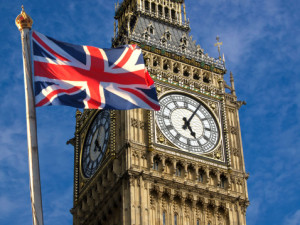Having listened to the pomp and ceremony of the recent opening of Parliament from our offices in Westminster, I was again reminded of the UK’s recent general election results. Surprisingly, in this day and age of social media and ease of collection and analysis of data, no one even came close to predicting the outcome. In fact, all of the poll predictions were way off the actual result, with only the exit polls giving any indication that the conservatives would become the majority government.
Another surprise was the strength of feelings and the politicization of the ‘Zero hours’ contracts debate. This became a major issue in the run-up to the election, with many interpretations from politicians and in the media as to what this phrase actually meant — transforming it from a method of securing contract workers, to a political platform with its meaning dependent on your political leaning and own circumstances.
While the use of zero-hour contracts is seen as being driven by market forces and providing a level of freedom that is needed for some industries to succeed, it is often interpreted as a way to exploit employees. Employers widely using these contracts are believed to be avoiding their financial and legal responsibilities, while controlling employees through unfair working hour allocation and exclusivity clauses.
The need for a dynamic workforce is becoming ever more important but it is not just about the employers; many workers want greater flexibility without even the restraint of set hours. The downside for workers is job and salary uncertainty. For employers, while it offers workforce elasticity, it removes some important aspects of business consistency.
According to the UK Office of National Statistics (ONS), 700,000 people were employed on zero-hours contracts between October and December 2014. This is only 2.3% of the total UK workforce and just a small increase of 0.4% in 2013. On the face of this, it doesn’t seem like an issue that could influence the outcome of a general election.
The ONS also found that the vast majority of zero-hours contractors worked 25 hours (or more) per week – which seems pretty reasonable for people who may be looking for a flexible work. What’s more, 84% of people on zero-hours contracts said they had either enough or about the right amount of work.
PREMIUM CONTENT: Zero hours exclusivity ban: what does this mean?
Legislation changes to ban exclusivity clauses have just come into force as part of the Small Business, Enterprise and Employment Act 2015. But had another party been elected, then much more wide reaching legislative powers against zero-hour contracts would have been imposed such as forcing employers to offer regular contracts after 12 weeks. This, often represented by the opposition as interference, would have had a fundamental change on the work market. What is really needed is for lawmakers to ensure workers and employers have the flexibility they want, but with safeguards in place to protect workers from exploitation.
We do not need an exit poll to predict that zero-hours contracts are here to stay. At least for the time being. However maintaining the fine balance between better protecting the most vulnerable while enabling organisations to work efficiently, is not going to be easy – and potentially with little further action until it becomes a vote winner at the next General Election.









